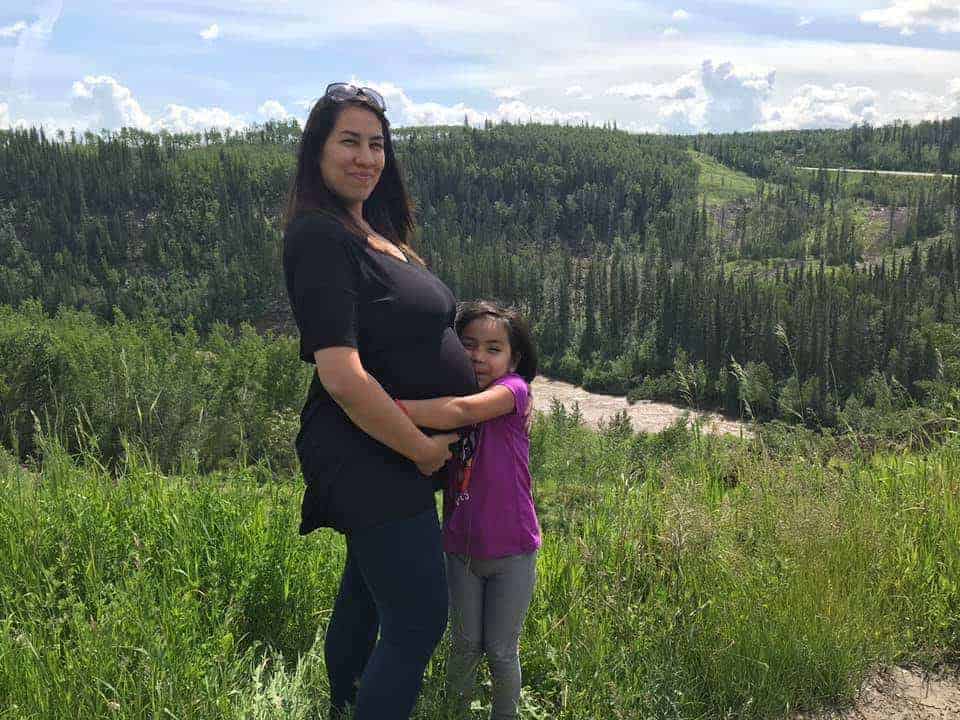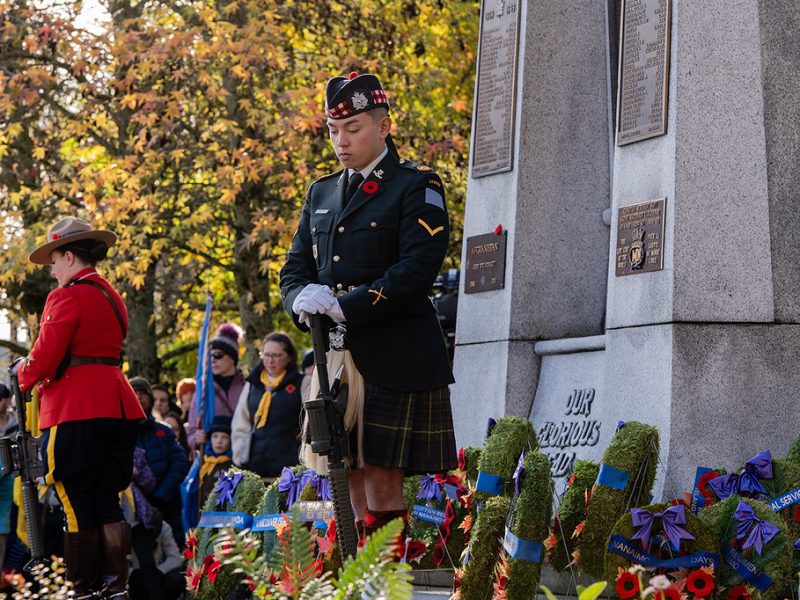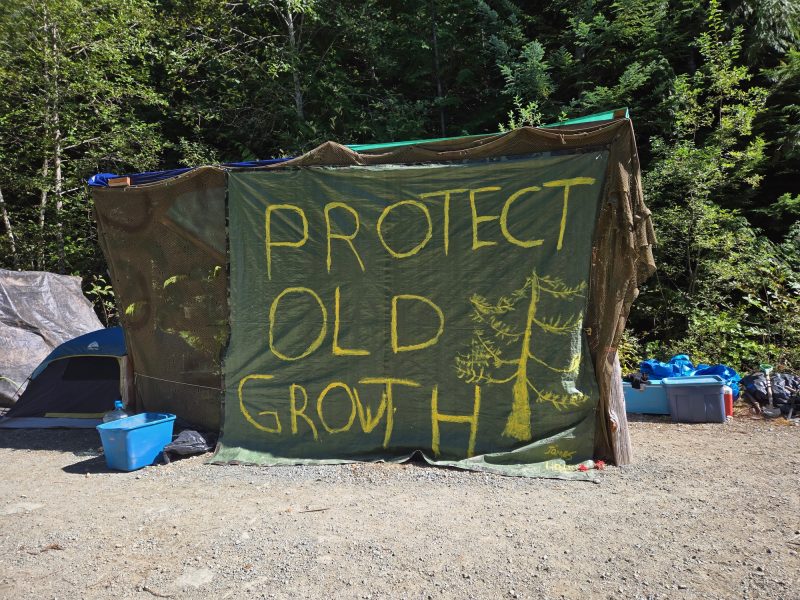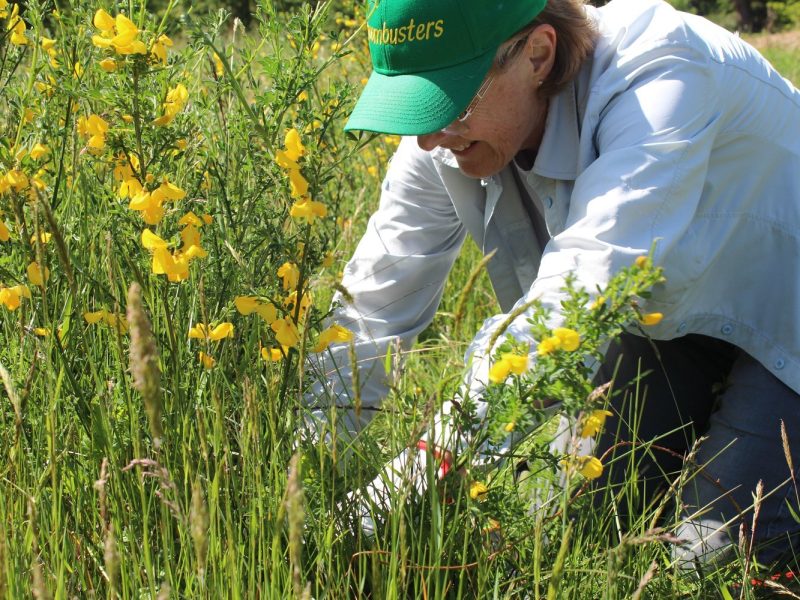
A Dene-Tahltan woman who lives in remote northern B.C. is sharing her birthing story — shining a light on the extra layer of complications faced by life-givers in rural areas.
Jasmine Netsena is a successful musician who has travelled across North America for her award-winning career. After moving back to Fort Nelson First Nation from Edmonton, she thought she was settling down.
But when she became pregnant with her second child, she was travelling more than ever — including booking the date she would give birth at a hospital a four hour drive away in Fort St. John, and being flown to Prince George for surgery in her third trimester.
There is a hospital near where she lives in Fort Nelson, however the services there are limited.
In cities, women who are facing complications during pregnancy can easily access care. But for women like Netsena in rural areas, there are less services and specialized medical care is often scarce.
Netsena gave birth to a healthy baby in September. She was just a few months pregnant when she began to feel stomach pain that she later found out was an inflamed gallbladder.
“I went into the hospital with abdominal pain and I felt like they didn’t take me that seriously, I was just sent home,” she says.
“I felt like that was wrong because a pregnant woman with abdominal pain shouldn’t really be sent home especially when we’re so far from a hospital that would be able to take care of me.”
The first two times she went to the hospital, she says, she was told that it was because of “gas” and that it was a normal part of pregnancy. Then it was discovered that she had gall stones and needed to go on a low-fat diet.
It wasn’t until her third trimester that she says the doctor finally took her concerns seriously, and a simple blood test indicated it was her gallbladder, and she needed surgery to remove it.

Photo provided by Jasmine Netsena
Not being able to undergo the procedure in Fort Nelson, Netsena was flown to hospital in Prince George for the surgery. Afterwards, she recovered for five weeks at home before driving 400 km to Fort St. John — where she waited to deliver her baby.
Planned birth travel is the reality for women who are far away from care like Netsena, who travelled to be near the proper hospital a month prior to her due date, which is a typical time frame for birth trips.
Netsena planned in advance to bring her daughter along and had a doula by her side, however her partner couldn’t be with her because of the distance.
A spokesman from B.C. Northern Health did not respond to Netsena’s particular circumstance, but spoke generally about the challenges for pregnant women who live in remote areas of the region.
Steve Raper says the health authority recognizes that travelling for maternal care can be disruptive and inconvenient, but “patient safety … must come first.”
“Ideally, women would give birth as close to their family and community as possible — no matter where they live in the province,” he says.
“Some communities, however, face challenges providing these services.”
Those challenges, he says, include recruiting and retaining trained staff, a low need for maternal care services, or clinicians not being comfortable providing some services without higher-level supports such as surgeons on deck.
“We also recognize that sometimes, babies arrive unexpectedly – and when this occurs, our physicians and staff are equipped to respond to an unplanned delivery at all Northern Health hospitals,” he added.
It’s a challenge all mothers who live in remote areas must keep in mind, and especially affects Indigenous people as reserves are often located far from urban centres.
But because living in cities can be challenging for other reasons, people like Netsena must weigh the pros and cons of both.

Netsena, who is originally from Telegraph Creek, moved away from the reserve for a short time to obtain a degree in music at the University of Alberta.
She packed up her life and moved to Edmonton in 2019 with her five-year-old daughter, but after the first semester she quickly realized she was not where she wanted to be.
“The family-life balance and all that was just a lot for me to take, and also I just really questioned why I wanted to get my music degree,” she says.
“I just wasn’t sure what I would do with it except teach and I wasn’t really feeling like teaching was my calling.”
Netsena is a singer-songwriter, and taught herself how to play guitar. She won the SOCAN Foundation Indigenous Songwriters Award in 2018.
Netsena took a step back to rethink what type of degree she wanted and figured that she didn’t necessarily need to move to the city to get a higher education with all the online options available nowadays.
After enduring such a strenuous second pregnancy, Netsena is happy to be at home with her baby and the rest of her family.
“With my first it went by so fast.” she says of her oldest daughter Sadeya. “I’m glad I have another baby. I’m just trying to really enjoy it because it’s going to be over before I know it.”
She often sings to her newborn baby and so does her oldest daughter Sadeya.
“They both have strong lungs,” Netsena laughs.
Editor’s note: Nov. 24, 2020: A previous version of this story stated that [put her full name here] had to go on a low fat diet due to “gas,” the story has been edited to clarify that she had to go on a low fat diet due to gall stones. In addition, the version stated that the clinic she went to was on reserve. In fact, it was off reserve.
Our series on reproductive health access is made possible in part with funding from First Nations Health Authority (FNHA) and Thunderbird Partnership Foundation. Their support does not imply endorsement of or influence over the content produced.



